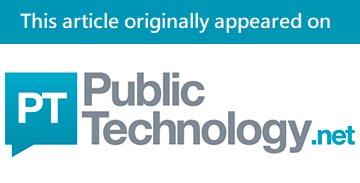

The Cabinet Office is nearing the end of the initial phase of a £50m project to overhaul departmental IT systems – the centrepiece of which is a wholesale switch from Google to Microsoft technologies.
The programme – formally known as the Falcon IT Platform Refresh and Migration – is a new addition to the freshly published 2023 version of the annual progress assessment of government’s major projects.
The programme is comprised of two core workstreams, the first of which is dedicated to implementing a single new departmental system for undertaking work classified at 'Official' level: the lowest of government’s three security tiers – below 'Top Secret' and 'Secret' – and the classification covering the majority of government data and systems. The new 'Official' platform will replace two that are currently in use concurrently.
Alongside this, a second work stream – as exclusively revealed by CSW sister publication PublicTechnology earlier this year – will “enable the implementation of the Central Digital Data Office interoperability policy standards and guidance”.
Adopting this guidance will most obviously manifest in migrating to Microsoft 365 software throughout the department, and ditching the Google technology currently used for core productivity apps across the Cabinet Office.
According to in-depth data sets published by the Cabinet Office alongside the full major-project report compiled by the Infrastructure and Projects Authority: “This will enable better interoperability across government as we move both our people and data from Google Workspace to Microsoft 365. The Cabinet Office is at the heart of government and a common productivity suite will enable more efficient and effective ways of working.”
The data also reveals that work on the Falcon programme officially began on 1 May 2022 with projected lifetime project costs of £52m. Delivery is scheduled to conclude by 31 March 2025 – albeit “with a contingency of one year that will be informed” by the programme’s ongoing discovery phase, that is due to wrap up “in autumn 2023 [and] will deliver a plan with a high level of confidence for the build of the new platform and the migration to M365”.
The project is forecast to deliver monetised benefits of £60m as well as “non-cashable benefits delivering improved collaboration and efficiency… from the migration of the department from Google to MS365 [while] the Official platform refresh will deliver enhanced cybersecurity benefits including mitigating the potential costs of addressing a serious cybersecurity attack”, according to the Cabinet Office project data.
Case work
The award of the programme’s two key commercial contracts – an £11.7m agreement with Capgemini to support delivery, and a £9m deal with Microsoft for software and migration assistance – had been scheduled to be finalised sometime before the end of the 2022/23 year. But the contracts were ultimately signed at the start of the current financial year.
“Extensions in timelines… were at the request of the market,” the data set adds. “One of the preferred commercial frameworks was closed – G-Cloud 12 – forcing the programme to move to G-Cloud 13 and restart that procurement.”
An “outline business case with forecast costs” for the Falcon project has already been approved, which has enabled work “to move into discovery where the phase report will confirm second-stage costs, [and] with this data a full business case with final costs will be submitted” to HM Treasury for final funding approval.
In its first year as part of the Government Major Projects Portfolio, the project achieved an amber rating on the traffic-light scale denoting the IPA’s confidence in successful delivery within projected costs and timescales.
This rating signifies that “successful delivery appears feasible but significant issues already exist, requiring management attention; these appear resolvable at this stage and, if addressed promptly, should not present a cost/schedule overrun”, according to the IPA report.
“The delivery confidence assessment of amber reflects the position of the Falcon programme in February 2023,” the Cabinet Office data says.
“The programme has continued to build capacity and capability to ensure it moves forward, it has successfully on-boarded partners and commenced the Discovery phase. Delivery is closely managed by the programme board attended by our partners to ensure a balance in pace of delivery and quality and ensuring value for money. The programme supports further independent assurance reviews and [these] are planned alongside the production of a full business case that will be submitted for approval by the Cabinet Office and by HM Treasury for funding to build the new platform and migrate users and their data to Microsoft M365.”
Created 12 years ago, the Government Digital Service – and its two-year old sister unit CDDO – have long been known for favouring the Google Workspace suite of core productivity applications, rather the Microsoft technologies used across much of the rest of government. The wider Cabinet Office adopted the Google apps in 2015, in what seen as a major coup for the enterprise software arm of the search-engine firm. The department signed an upgraded two-year deal with the vendor 18 months ago.